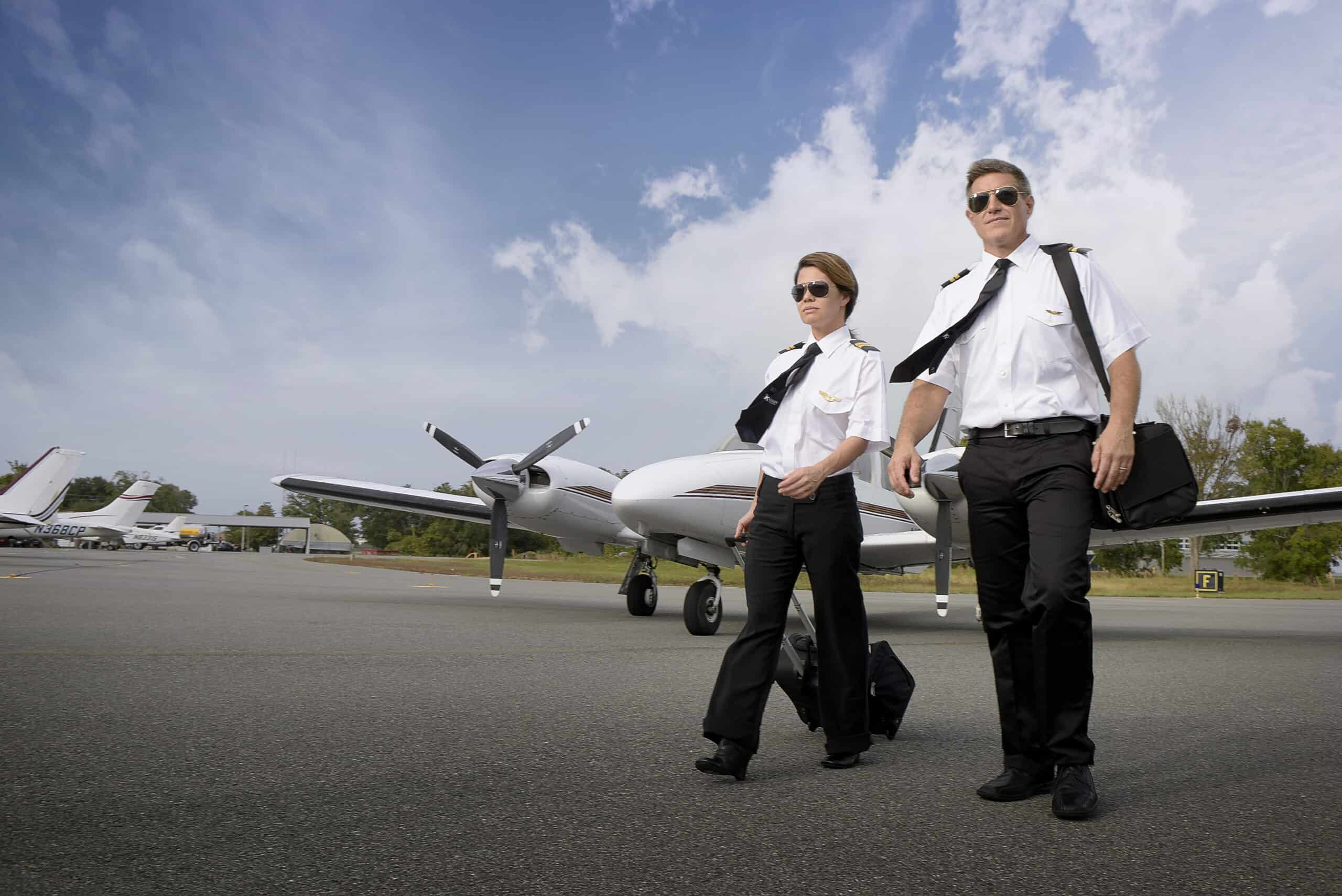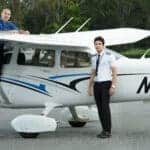Corporate Pilot Career: Flying Private Jets in India – #1 Ultimate Guide

Corporate & Private Jet Pilot Jobs in India
The corporate pilot career is gaining traction in India as private aviation expands. With rising demand for executive travel, businesses and high-net-worth individuals increasingly rely on private jets, creating opportunities for skilled pilots.
India’s growing economy and increasing private jet ownership have fueled demand for corporate pilots, particularly in cities like Mumbai, Delhi, and Bangalore. To enter this field, pilots must meet the Directorate General of Civil Aviation (DGCA) regulations, ensuring compliance with training and licensing standards.
This article outlines the career path, training requirements, job prospects, and challenges of flying private jets in India.
What is a Corporate Pilot Career?
A corporate pilot flies private jets for high-net-worth individuals, corporations, charter services, and government officials. Unlike airline pilots who follow fixed routes and schedules, corporate pilots operate on-demand, adapting to client needs. They may transport business executives, celebrities, or government officials to destinations with minimal delays and maximum convenience.
Corporate Pilots vs. Airline Pilots
The primary distinction between corporate and airline pilots lies in their flight operations. Corporate pilots fly smaller, business jets and often have irregular schedules, whereas airline pilots work on structured timetables with fixed routes.
Additionally, corporate pilots provide personalized service to VIP clients, whereas airline pilots transport the general public on large commercial aircraft.
Who Hires Corporate Pilots?
Corporate pilots are in demand across various sectors:
- Business Aviation: Companies with private fleets hire pilots to transport executives.
- Charter Services: Private jet operators employ pilots for on-demand flights.
- Government and VIP Transport: Pilots fly government officials and high-profile individuals.
- Luxury Tourism: Wealthy travelers and celebrities use private aviation for exclusive travel experiences.
Demand for Corporate Pilots in India
India’s private aviation industry is witnessing steady growth, fueled by a rising number of business leaders, celebrities, and corporate houses opting for private jets. The demand for corporate pilots has surged as companies and individuals seek greater flexibility and efficiency in air travel.
Key Cities Driving Demand
Major business and financial hubs lead the growth of corporate aviation, with the highest demand for corporate pilots seen in:
- Mumbai & Delhi – Centers of finance, politics, and luxury travel.
- Bangalore – A thriving tech hub with a growing number of private jet users.
- Hyderabad – An emerging business aviation center catering to corporate travelers.
Growth of Charter Services and Private Fleets
With increased private jet ownership and more charter companies entering the Indian market, career opportunities for corporate pilots are expanding. Companies are investing in business aviation infrastructure, while regulatory initiatives are making private aviation more accessible. This upward trend presents promising prospects for trained pilots looking to enter the sector.
Corporate Pilot Training Requirements in India
Pursuing a corporate pilot career in India requires meeting strict DGCA (Directorate General of Civil Aviation) regulations. Pilots must complete specialized training, obtain necessary licenses, and ensure compliance with medical and educational requirements.
To begin training, candidates must be at least 17 years old and have completed 10+2 with Physics and Mathematics. Those who do not meet this requirement can opt for a bridge course to qualify for flight training. Additionally, obtaining a DGCA Class 1 Medical Certificate is mandatory to ensure fitness for professional flying.
The licensing process starts with a Private Pilot License (PPL), which allows non-commercial flying. To qualify for corporate aviation, candidates must obtain a Commercial Pilot License (CPL) with a minimum of 200 flight hours. Since corporate pilots operate high-end jets, a Type Rating on aircraft like Gulfstream, Bombardier, or Cessna is essential.
Key Training Requirements:
- Age: Minimum 17 years
- Education: 10+2 with Physics & Mathematics
- Medical: DGCA Class 1 Medical Certificate
- Licenses Required: PPL, CPL, and Type Rating
Several DGCA-approved flight academies in India offer structured training for corporate aviation. Notable institution like the Florida Flyers Flight Academy India. These academies provide CPL programs and type rating courses, preparing pilots for private jet operations.
With the right training and licensing, pilots can enter the corporate aviation sector, gaining experience in private jet operations and VIP transport.
Skills and Responsibilities of a Corporate Pilot
A corporate pilot career requires more than just technical flying skills. Unlike airline pilots who operate on fixed schedules, corporate pilots must adapt to irregular flight itineraries, cater to high-profile clients, and maintain strict confidentiality. This role demands a high level of professionalism, adaptability, and customer service to ensure seamless private travel experiences.
Successful corporate pilots must be prepared for last-minute flight changes, different global destinations, and personalized services tailored to the needs of business executives, celebrities, and government officials. Beyond flying, they handle flight planning, safety checks, and aircraft maintenance coordination to ensure operational efficiency.
Essential Skills for a Corporate Pilot Career:
- Adaptability – Handling unpredictable schedules and diverse flight routes.
- Professionalism & Discretion – Maintaining confidentiality while working with high-net-worth individuals.
- Customer Service – Ensuring VIP clients receive a smooth, luxurious travel experience.
- Decision-Making – Managing in-flight challenges, weather disruptions, and route adjustments.
Primary Responsibilities Include:
- Flight Planning & Coordination – Evaluating weather conditions, fuel needs, and navigation routes.
- Aircraft Safety & Maintenance – Conducting pre-flight and post-flight inspections for regulatory compliance.
- VIP Passenger Management – Delivering a high standard of service for executives and elite travelers.
A corporate pilot career in India offers flexibility, prestige, and lucrative earning potential. However, the role comes with high expectations, requiring pilots to demonstrate operational excellence, strong interpersonal skills, and a commitment to ongoing training.
Corporate Pilot Career: Salary and Benefits in India
A corporate pilot career in India offers competitive salaries along with several perks, making it a sought-after profession. However, salaries vary depending on experience, aircraft type, employer, and flight hours.
Salary Comparison: Entry-Level vs. Experienced Corporate Pilots
Entry-level corporate pilots, typically those with a fresh Commercial Pilot License (CPL) and a newly acquired Type Rating, earn between ₹2.5 lakh to ₹5 lakh per month. Their income is influenced by the type of business jet flown, employer profile, and contract type.
As pilots gain more experience, salaries increase significantly. Experienced corporate pilots, especially those flying high-end jets like Gulfstream, Bombardier, or Dassault Falcon, can earn anywhere between ₹7 lakh to ₹12 lakh per month, with some earning even higher in premium charter services.
Perks of a Corporate Pilot Career
Apart from high salaries, corporate pilots enjoy several unique benefits, including:
- Flexible Schedules – Corporate pilots do not operate fixed routes like airline pilots, allowing for more flexibility.
- Luxury Travel – Since private jets fly to premium destinations, pilots often experience luxury accommodations and travel perks.
- Exclusive Networking – Flying business executives, celebrities, and government officials offers pilots opportunities to build high-level connections in the industry.
Contract-Based vs. Full-Time Employment
A corporate pilot career offers multiple employment models. Some pilots work as full-time employees for corporations, flying company-owned private jets for executives. This provides job stability, scheduled flight hours, and company benefits.
Others prefer contract-based employment, where they work with charter companies or freelance for multiple high-net-worth clients. While contract-based jobs offer higher pay per flight, they require pilots to constantly network and secure their own assignments.
Despite the variations in salary and employment types, a corporate pilot career remains a lucrative and prestigious option for professional aviators in India.
Challenges of a Corporate Pilot Career
While a corporate pilot career is rewarding, it comes with its own set of challenges that aspiring pilots must be prepared for.
Irregular Working Hours and Long Standby Times
Corporate pilots do not have fixed schedules. Unlike airline pilots who operate on pre-determined flight routes, corporate pilots often remain on standby, waiting for last-minute flight requests. Clients may schedule flights at any time, requiring pilots to be available at short notice. This unpredictability can make work-life balance challenging.
Additionally, corporate pilots sometimes have long waiting periods between flights. They may need to stay in luxury destinations for extended durations while their clients conduct business meetings or personal activities before returning.
Fewer Job Openings Compared to Airline Pilots
Corporate aviation is a niche industry in India, with fewer job opportunities compared to commercial airlines. Since the number of private jets is significantly lower than airline fleets, the demand for corporate pilots is limited but highly competitive.
Pilots looking to break into corporate aviation must focus on building a strong professional network, leveraging connections with private jet operators, luxury charter companies, and high-profile clients.
Continuous Training and Recurrent Checks
A corporate pilot career requires ongoing training and regulatory compliance. The DGCA (Directorate General of Civil Aviation) mandates that corporate pilots undergo regular simulator training, skill proficiency tests, and medical checks to ensure operational efficiency.
Additionally, corporate jet technology evolves rapidly, and pilots must stay updated with new aircraft systems, avionics, and safety protocols. This makes continuous learning an essential part of the profession.
Despite these challenges, a corporate pilot career in India is an excellent choice for those who enjoy luxury aviation, personalized flight experiences, and flexible work environments. With increasing private jet ownership and an expanding business aviation sector, opportunities in corporate aviation are gradually growing.
How to Start a Corporate Pilot Career in India
A corporate pilot career in India requires structured training, relevant experience, and strategic job searching. Aspiring pilots must follow a step-by-step approach to meet DGCA (Directorate General of Civil Aviation) requirements and position themselves for opportunities in private aviation.
Step-by-Step Pathway to Becoming a Corporate Pilot
Enroll in a DGCA-Approved Flight School: Candidates must begin their training at a DGCA-approved flying academy, where they will complete the necessary flight hours and theoretical training. Choosing a reputed flight school with corporate aviation exposure can provide an advantage.
Obtain a Commercial Pilot License (CPL) and Type Rating: After completing at least 200 flight hours, pilots qualify for a Commercial Pilot License (CPL). Since corporate pilots operate high-end business jets, obtaining a Type Rating for specific aircraft like Gulfstream, Bombardier, or Cessna is essential.
Gain Experience Through Charter Companies or Flight Schools: Corporate aviation employers prefer pilots with experience. Entry-level pilots can build flight hours by working with charter operators, private jet rental services, or as flight instructors in training academies before transitioning into full-time corporate aviation roles.
Apply for Corporate Aviation Jobs: Once licensed and experienced, pilots can explore full-time or contract-based corporate pilot positions. Employers include business executives, luxury travel companies, and private jet operators.
Networking and Job Search Strategies
Corporate aviation jobs are highly competitive, making networking a crucial part of securing a position. Pilots should leverage:
- Aviation Forums & Professional Associations – Engaging in discussions on aviation communities, DGCA forums, and corporate aviation networks can provide valuable job leads.
- LinkedIn & Industry Contacts – Building a strong LinkedIn profile and connecting with professionals in the business aviation industry increases visibility to recruiters.
- Company Websites & Direct Applications – Many private jet operators list job openings on their official websites, allowing pilots to apply directly.
- Attending Aviation Events – Industry exhibitions and networking events provide opportunities to meet potential employers.
With growing private jet ownership and increased demand for executive travel, corporate aviation in India is gradually expanding. Strategic career planning, continuous training, and strong networking can help pilots secure high-paying corporate pilot jobs in India’s private aviation sector.
Conclusion
A corporate pilot career in India presents an exciting opportunity for pilots seeking flexibility, exclusivity, and high earning potential. With increasing demand for private jets, corporate pilots are becoming indispensable for business executives, celebrities, and high-net-worth individuals.
The path to becoming a corporate pilot requires DGCA-approved training, obtaining a CPL, type rating certification, and gaining relevant experience. While the job comes with challenges such as irregular schedules and continuous training requirements, it also offers luxury travel, networking opportunities, and a rewarding salary.
As India’s business aviation sector expands, more opportunities are emerging for skilled pilots. Those who are committed to professional development, networking, and mastering corporate jet operations can build a successful career in private aviation. With the right approach, aspiring pilots can turn their passion for flying into a prestigious and financially rewarding career.
Contact the Florida Flyers Flight Academy India Team today at +91 (0) 1171 816622 to learn more about the Private Pilot Ground School Course.



